Have A Nice Dziady Time, Guys ❤

Have a nice Dziady time, guys ❤
More Posts from Navvka and Others
If Victor Vale was a woman, he would be her


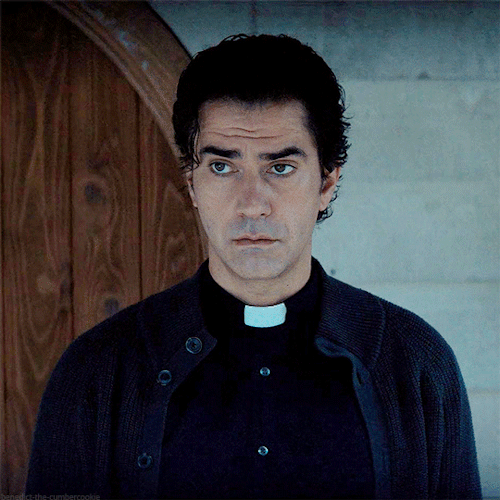
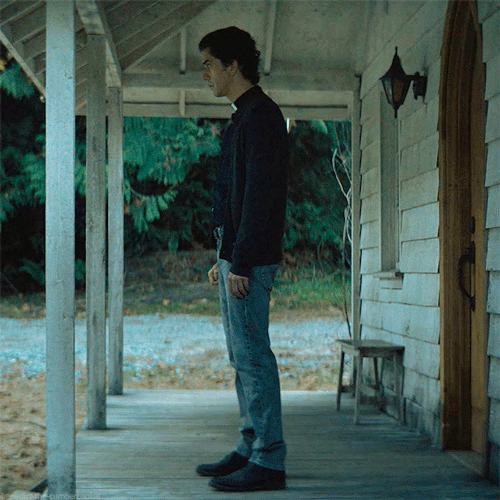
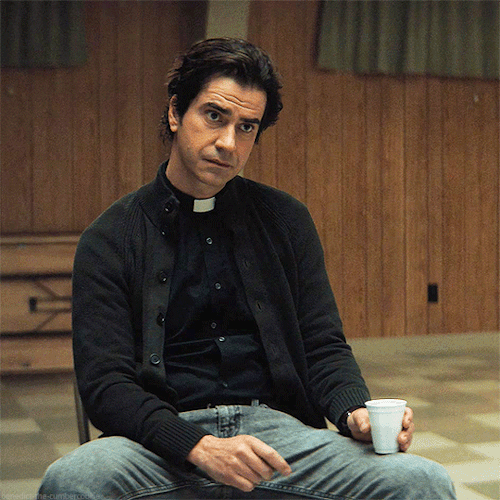
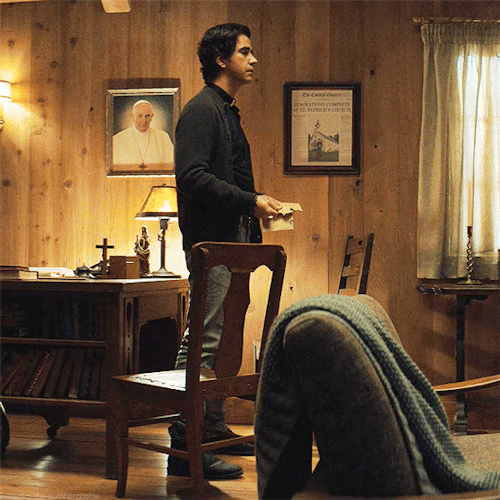
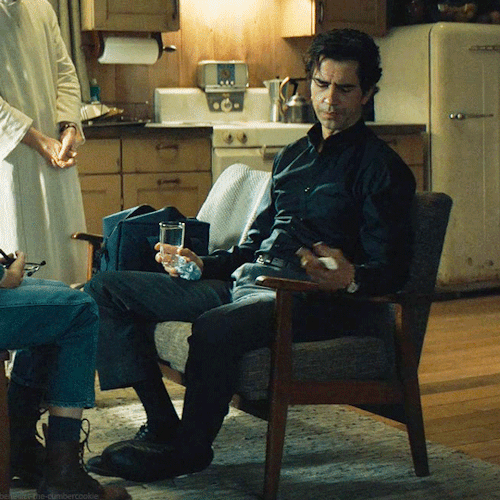
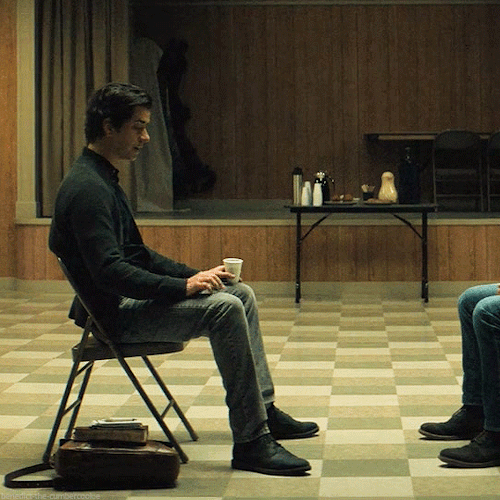

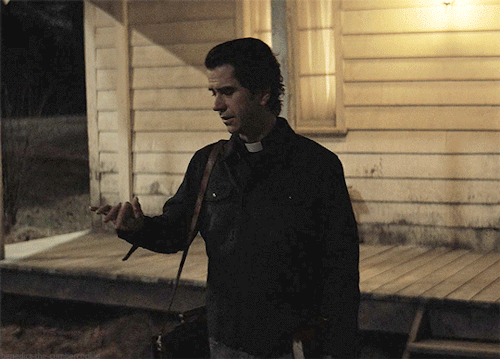
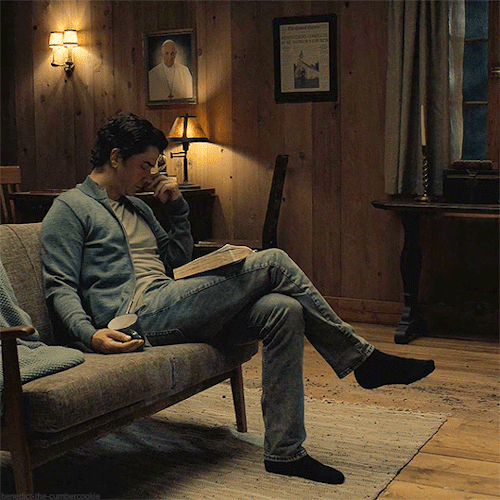
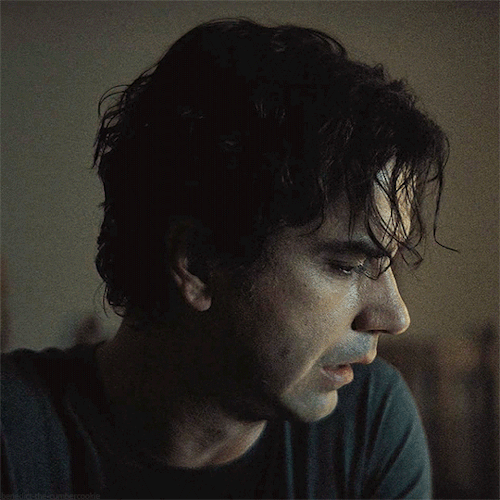
My favorite subtle acting moments by Hamish Linklater in Midnight Mass


Before the Great Dad War, there was fishing.
I have so many thoughts but I at least want to address the "for the new unicorn" note. because first of all it's so incredibly gratifying for izzy to finally be accepted into a community. it was shown before that the crew cares for him in some way but it was the first time he really saw that. that he isn't useless and alone, that he still has a place on the ship. even more so the crew WANTS HIM to be on the ship. and also that they want him to embrace his disability which doesn't make them think any less for him.
but also the choice of words. because inherently it rings queer, unicorn as a symbol of queerness. and even if it may have a negative sound when you use it differently here it is extremely positive. izzy is not only accepted to the crew, he's also accepted to the queer community, to the family. the unicorn on the revenge was also the one that was leading the ship, so one can argue that they want him to take that role in their dynamic.
and you can see that he does so immediately. he puts himself together and starts helping the crew. he's still bitchy but no longer violent and cruel. he helps stede and lucius immensely because that is what he does now. he's part of the family. twat.
Pieces of A Novel - Wordsnstuff November Monthly Writing Challenge

The idea of this challenge is to plan one piece of your story per day. For those participating in NaNoWriMo, this may be a helpful tool to use in conjunction with your daily writing goal. This can help you sustain inspiration, and it can help you find that balance between careful planning and spontaneity that many struggle to maintain.
This tool is designed to help you plan and/or write a longer story in a short amount of time, particularly a novel. If you choose to both plan and draft each scene assigned to each day, you should in theory have a near complete first draft of your story in a single month. Instead of basing the challenge on a word goal, it's organized into a list of tasks. Once all/most of these scenes are planned or written, you will have a nearly complete draft, missing only the scenes unique to your story.
The inciting incident of the beginning of your story.
Establish your protagonist(s) core need and bring key characters into the picture.
A scene that progressively complicates the beginning of your story.
A scene that establishes the protagonist(s)'s strengths and/or weaknesses
A scene that creates a crisis question at the beginning of your story.
A scene that foreshadows the arc of the main characters.
A scene that climaxes the beginning of your story.
A scene that establishes what the protagonist wants, versus what they think they need, versus what they actually need, as well as what they're willing to do to get it.
A scene that resolves the beginning of your story.
A scene that gives the reader a glimpse into the antagonist's power, needs, or goals. Alternatively, if there is no antagonist, a scene that establishes the background of the main challenge the protagonist is trying to overcome..
The inciting incident of the middle of your story.
A scene with a twist—something new happens. A new friend, minor antagonist, or new information arises as a result of the middle inciting incident.
A scene that progressively complicates the middle of your story.
An unexpected twist gives the protagonist(s) false hope. An important clue or weapon arises.
A scene that creates a crisis question in the middle of your story.
A scene that establishes how the protagonist(s) and antagonist(s) motivations could become their downfall.
A scene that climaxes the middle of your story.
A scene that reveals the protagonist(s)'s and/or antagonist(s)'s greatest fears.
A scene that resolves the middle of your story.
A scene that foreshadows what the protagonist(s) and antagonist(s) will gain/lose in the process of pursuing their goal.
The inciting incident of the end of your story.
A scene that establishes that there is no turning back for your main character(s)
A scene that progressively complicates the end of your story.
A scene that establishes how the main character(s)'s strengths/weaknesses help or hinder their success
A scene that creates a crisis question at the end of your story.
A scene that establishes what the protagonist(s) and antagonist(s) learn once they initially succeed/fail
A scene that climaxes the end of your story.
A scene that answers one of the major questions of your story, or resolves an important dramatic theme.
A scene that resolves the end of your story.
(bonus) A scene that hints to the continuation of the story, if a sequel is to come.
–
Masterlist
If you enjoy my blog and wish for it to continue being updated frequently and for me to continue putting my energy toward answering your questions, please consider Buying Me A Coffee, or pledging your support on Patreon, where I offer early access and exclusive benefits for only $5/month.




"We should think of ourselves as one people."
-
 shcheglik liked this · 1 month ago
shcheglik liked this · 1 month ago -
 cheshy-b333 liked this · 2 months ago
cheshy-b333 liked this · 2 months ago -
 maddpool reblogged this · 7 months ago
maddpool reblogged this · 7 months ago -
 evilsnootlord reblogged this · 7 months ago
evilsnootlord reblogged this · 7 months ago -
 evilsnootlord liked this · 7 months ago
evilsnootlord liked this · 7 months ago -
 martis-ire reblogged this · 7 months ago
martis-ire reblogged this · 7 months ago -
 brizgallows liked this · 8 months ago
brizgallows liked this · 8 months ago -
 artspamist reblogged this · 8 months ago
artspamist reblogged this · 8 months ago -
 blueempathheroweasel liked this · 1 year ago
blueempathheroweasel liked this · 1 year ago -
 navyblueiris liked this · 1 year ago
navyblueiris liked this · 1 year ago -
 deetherusalka liked this · 1 year ago
deetherusalka liked this · 1 year ago -
 nekroprejt liked this · 1 year ago
nekroprejt liked this · 1 year ago -
 moss-foot liked this · 2 years ago
moss-foot liked this · 2 years ago -
 l01001001l liked this · 2 years ago
l01001001l liked this · 2 years ago -
 alexandros-deathwood liked this · 2 years ago
alexandros-deathwood liked this · 2 years ago -
 m0rdantt liked this · 2 years ago
m0rdantt liked this · 2 years ago -
 mxiguess liked this · 2 years ago
mxiguess liked this · 2 years ago -
 mandalorianreynolds liked this · 2 years ago
mandalorianreynolds liked this · 2 years ago -
 zorejar liked this · 2 years ago
zorejar liked this · 2 years ago -
 vampiiriic liked this · 2 years ago
vampiiriic liked this · 2 years ago -
 itsyasuds reblogged this · 2 years ago
itsyasuds reblogged this · 2 years ago -
 egoslut reblogged this · 2 years ago
egoslut reblogged this · 2 years ago -
 gaydryad liked this · 2 years ago
gaydryad liked this · 2 years ago -
 keepxsolxinxsolxinvictus reblogged this · 2 years ago
keepxsolxinxsolxinvictus reblogged this · 2 years ago -
 pappenheimer liked this · 2 years ago
pappenheimer liked this · 2 years ago -
 ariel-seagull-wings liked this · 2 years ago
ariel-seagull-wings liked this · 2 years ago -
 aircea reblogged this · 2 years ago
aircea reblogged this · 2 years ago -
 vaporgrvve liked this · 2 years ago
vaporgrvve liked this · 2 years ago -
 live-prey reblogged this · 2 years ago
live-prey reblogged this · 2 years ago -
 live-prey liked this · 2 years ago
live-prey liked this · 2 years ago -
 rzufik liked this · 2 years ago
rzufik liked this · 2 years ago -
 wwaywward-vvagabond liked this · 2 years ago
wwaywward-vvagabond liked this · 2 years ago -
 cleaverqueer liked this · 2 years ago
cleaverqueer liked this · 2 years ago -
 through-the-unknown reblogged this · 2 years ago
through-the-unknown reblogged this · 2 years ago -
 strange-as-it-may-seem reblogged this · 2 years ago
strange-as-it-may-seem reblogged this · 2 years ago -
 strange-as-it-may-seem liked this · 2 years ago
strange-as-it-may-seem liked this · 2 years ago -
 tattoosofthescrewed reblogged this · 2 years ago
tattoosofthescrewed reblogged this · 2 years ago -
 red-r0ver liked this · 2 years ago
red-r0ver liked this · 2 years ago -
 redspringthorn liked this · 2 years ago
redspringthorn liked this · 2 years ago -
 777-777-776 reblogged this · 2 years ago
777-777-776 reblogged this · 2 years ago -
 sophiemariepl liked this · 2 years ago
sophiemariepl liked this · 2 years ago -
 pvrun reblogged this · 2 years ago
pvrun reblogged this · 2 years ago -
 thejogurt liked this · 2 years ago
thejogurt liked this · 2 years ago -
 androgynousmoth liked this · 2 years ago
androgynousmoth liked this · 2 years ago -
 robin54 liked this · 2 years ago
robin54 liked this · 2 years ago -
 seawitchwadanohara reblogged this · 2 years ago
seawitchwadanohara reblogged this · 2 years ago






